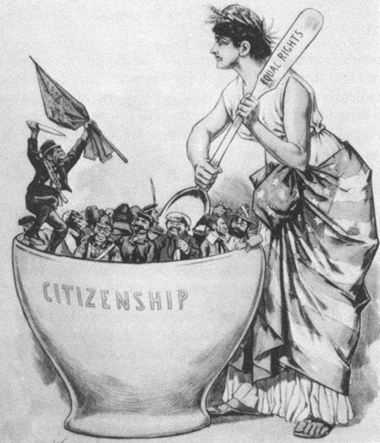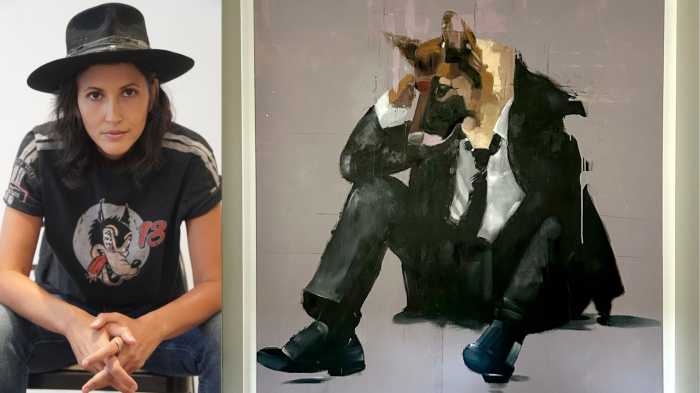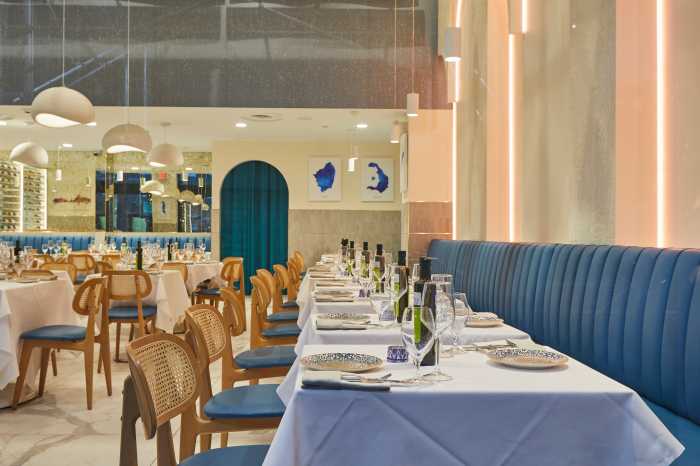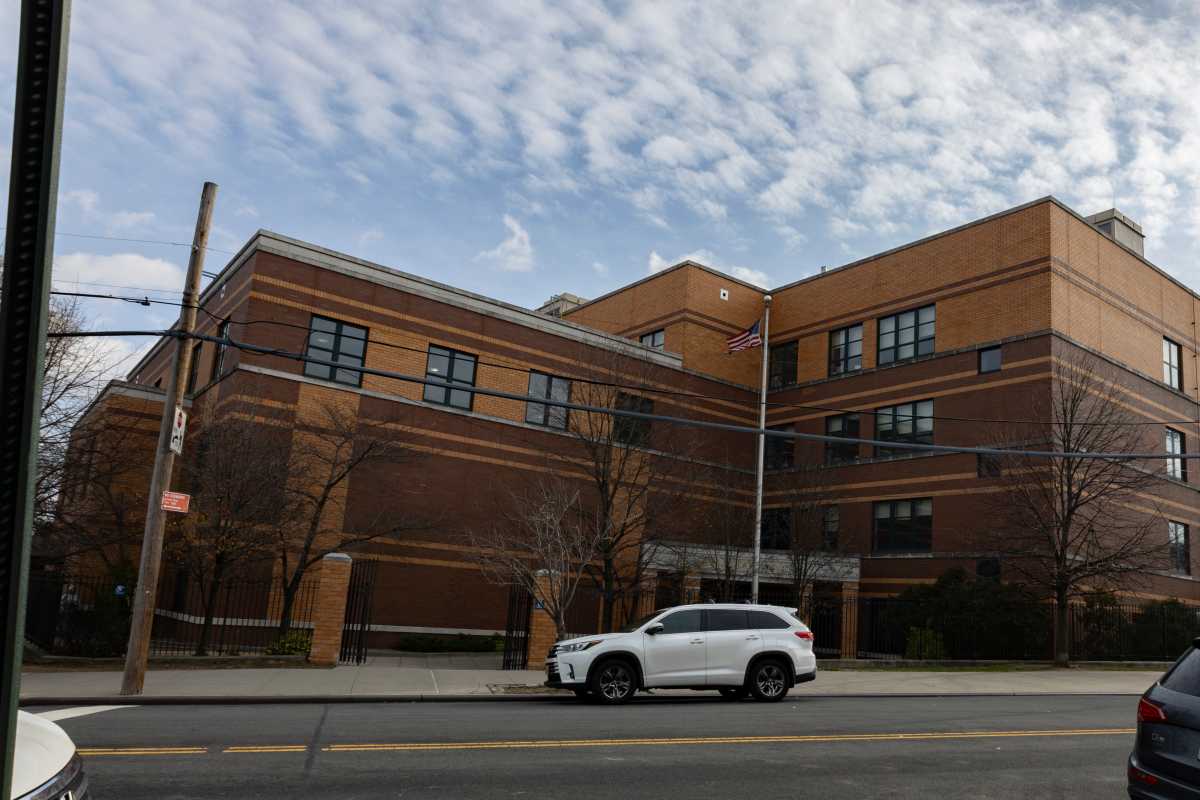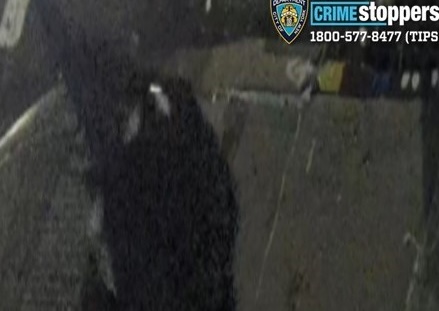By Jerry Tallmer
Bob Kalfin neatly circled two paragraphs of a column by Thomas L. Friedman on the Op-Ed page of the New York Times.
“I’m going to read this to the cast,” said Robert Z. Kalfin, who has been directing plays Off-Broadway and elsewhere in the world ever since “The Golem,” on Second Avenue, in 1959. Please note the Z.
At the moment, Kalfin is directing “The Melting Pot,” Israel Zangwill’s 1908 beacon-of-liberty drama that runs through April 2 at the Metropolitan Playhouse on 4th Street in the melting pot of the Lower East Side of New York City.
The Friedman paragraphs:
My point is simple: the world is drifting dangerously toward a widespread religious and sectarian cleavage — the likes of which we have not seen for a long, long time. The only country with the power to stem this toxic trend is America.
People across the world still look to our example of pluralism, which is like no other. If we go Dark Ages, if we go down the road of pitchfork-wielding zenophobia, then the whole world will go Dark Ages.
“It’s like right out of the play,” said Kalfin.
Like this passage, say:
“The Crucible? I don’t understand,” Vera, the lovely shicksa who helps run the settlement house, says to David, the gifted young Jewish violinist and composer who as a small boy had seen his mother, father, and sisters slaughtered by Cossacks in a pogrom back in Russia.
“Not understand! [exclaims David, who is falling in love with her]. “You, the Spirit of the Settlement! Not understand that America is God’s Crucible, the great Melting Pot where all of the races of Europe are melting and re-forming! Here you stand, good folk, think I, when I see them at Ellis Island, here you stand in your 50 groups, with your 50 languages and histories, and your 50 blood hatreds and rivalries. But you won’t be long like that, brothers … A fig for your feuds and vendettas! Germans and Frenchmen, Irishmen and Englishmen, Jews and Russians – into the Crucible with you all! God is making the American.”
A little bit farther on, David’s cautious, less Americanized uncle sardonically counters that “[m]any countries have gathered us [Jews]. Holland took us when we were driven from Spain — but we did not become Dutchmen. Turkey took us when Germany oppressed us, but we have not become Turks.”
Yes, says David, once again with heat, but “[t]hose countries were not in the making. They were old civilizations stamped with the seal of creed. In such countries the few may be right to stand out. But here in this new secular Republic we must look forward …”
All of which sprang from the pen, not of an American, but of London-born-and-bred Israel Zangwill (1864-1926), “the Jewish Dickens,” in an era when Jews were still being stereotyped as comic/villainous figures on the British stage.
“Then suddenly here were some who were real,” said Kalfin. “He does go on and on, this David Quixano. Shut up, already! But still, I find his sincerity and his passion so touching, so heartfelt, and so particularly applicable in the present climate” — of religious furies abroad and increasing xenophobia at home.
Remember the Z. The director’s full name is Robert Zangwill Kalfin, the middle link bestowed on him at birth (April 22, 1933) by his uncle William Schulman, playwright, scenic designer, writer of radio dramas. Bob Kalfin’s mother, Hilda Kalfin Epstein, is 97 now, and still thinks “maybe we should have sent you to law school.”
The original title of “The Melting Pot” was in fact ‘The Crucible,” says Kalfin. “But that was a little too fancy for American audiences, and Arthur Miller hadn’t been born yet. So Zangwill changed it to ‘The Melting Pot.’ He dedicated it to Theodore Roosevelt, and the President came to opening night in 1908 in Washington, D.C.,” long before it ever played London.
From Washington it went on to “phenomenal success” in Chicago, we are told by Edna Nahshon, associate professor of Hebrew at the Jewish Theological Seminary of America and author of “From the Ghetto to the Melting Pot: Israel Zangwill’s Jewish Plays” (Wayne State University Press). From Chicago it traveled to Baltimore, and in 1909 “The Melting Pot” reached Broadway, where it ran for a then record-setting 136 performances.
It hasn’t since been done here, professionally, in English, for what is almost 100 years.
“I was a little nervous,” says Dr. Nahshon, who had attended rehearsals earlier that day. “But you know, it really works. All those overly bombastic passages have been toned down. And remember, the nice thing is that the whole concept of a melting pot actually comes from the theater.”
“She was worried about it being melodrama,” said Kalfin. “But when David says them, those slogans suddenly become personal, connected to a human being.”
David, in this variant of the Romeo and Juliet story, is played by Daniel Sheflin; Vera by Margaret Loesser Robinson; David’s Yiddish-speaking old mother by Suzanne Roren; his Uncle Mendel by
Ste ve Sterner; Vera’s father, Baron Revendal, by Page Hearn; the Baron’s bigoted consort by Christina Demetriou; and a younger, more foppish British bigot by Paul de Cordova.
Zangwill completed the script in 1908. Five years earlier, in 1903, there had occurred a horrifying pogrom — a massacre of Jews — at Kishinev, in Imperial Russia. It is this massacre that David can never forget, and that leads Vera to cry out, when she learns that her own father presided over that butchery: “Great God! Is there no pity in heaven?”
“There was no pity on earth,” David replies.
Somewhere in one’s inner ear, there echoes the awful question — “Where was God?” — from the crossroads of a million murders 40 years after Kishinev. And the bleak response: “Where was man?”
“Yes,” says the Robert Kalfin who first came upon “The Melting Pot” as a title on a flyer in the lobby of the Metropolitan Theater, and then was given the job of staging it by Metropolitan artistic director Alex Roe, “in this play the elephant in the room is the Holocaust … which hasn’t happened yet.”
When Kalfin, one day to be founder and artistic director of this city’s Chelsea Theater Center, staged “The Golem” back there in 1959 — “ ‘Ban-the-Bomb’ time, remember?” — it was because he thought that parable had something to say about manmade monsters.
And when, in the 1990s, he was given a chance to direct a show in the U.S.S.R., he elected to do “The Skin of Our Teeth,” by the Thornton Wilder whose works had long been banned under Stalin & Co. “along with Voltaire, who knows why?”
It is, Kalfin says, “the same excitement for me now. To me, this play is saying: ‘Hey, wait a minute! This is what we’re supposed to be, not just putting everything into the blender to make a mush of it. Nor the poison that’s still with us” — the anti-immigration fever that would close the golden door, black out the lamp of the lady in the harbor.
“If we become like the North Koreans … ,” says a wry Robert Zangwill Kalfin, and lets it hang there, leaving Israel Zangwill to say the rest of it.
THE MELTING POT. By Israel Zangwill. Directed by Robert Z. Kalfin. Through April 2 at the Metropolitan Playhouse, 240 East 4th Street, (212) 995-5302.



